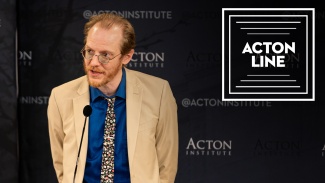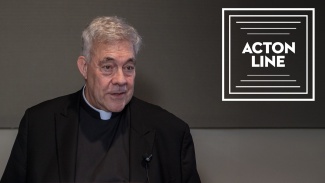
Overview
On November 7, 2022, the jackpot for the Powerball lottery reached an astonishing $2.05 billion. Even after the federal and state governments take their piece of that, the winner will still be the recipient of a life-changing amount of money, more than enough to last an entire lifetime. But if the winner of that $2.05 billion Powerball jackpot was the United States federal government, they'd burn through that enormous sum of money in just over a week.
How did the federal budget get this large? What does that budget say about our political system and the desires and priorities of the public and politicians?
In this episode, Eric Kohn sits down with Dr. David Hebert, chair of the economics department and associate professor of economics at Aquinas College in Grand Rapids, to discuss his recent article for the American Institute for Economic Research using the Powerball to explain the size and scope of the federal budget.
David Hebert graduated with a bachelor's degree in economics from Hillsdale College in 2009, and then attended George Mason University, where he earned a master's in 2011 and a doctorate in 2014. During graduate school, he was an F.A. Hayek fellow with the Mercatus Center and a fellow with the Department of Health Administration and Policy. He also worked with the Joint Economic Committee in the U.S. Congress. Since graduating, he has worked as an assistant professor at Ferris State University in Big Rapids, Michigan, and Troy University in Troy, Alabama. He was also a fellow with the U.S. Senate Budget Committee, where he authored a comprehensive report on federal budget process reform.
Register Now for Business Matters 2023
Apply Now for Acton University 2023 (Early Bird Pricing)
Taxes, Spending, and Powerball Winnings by David Hebert | AEIR










